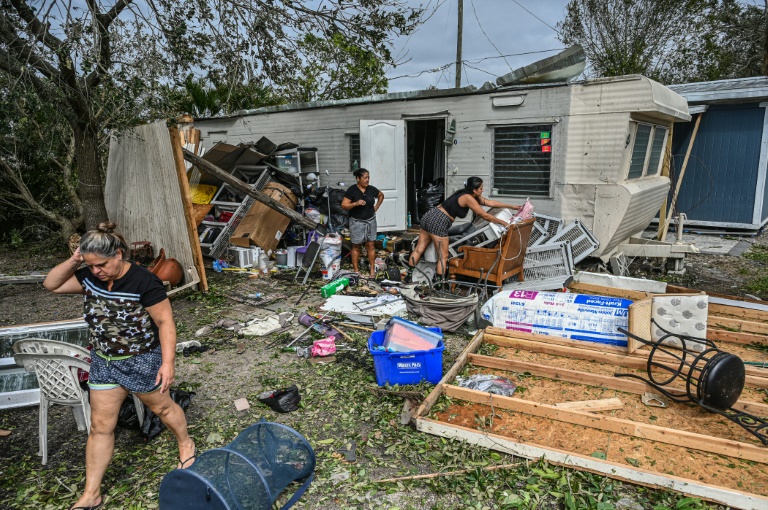
How Natural Disasters Affect Mental Health and Tips for Coping
How Natural Disasters Affect Mental Health and Tips for Coping
Natural disasters—hurricanes, earthquakes, floods, wildfires—disrupt not just the physical environment but also our mental and emotional well-being. The aftermath of such events often leaves communities grappling with trauma, fear, loss, and uncertainty. Understanding how natural disasters affect mental health and finding ways to cope is crucial to healing and rebuilding resilience
The Psychological Impact of Natural Disasters
While everyone experiences natural disasters differently, common mental health challenges arise in the wake of these traumatic events. Below are some of the most common psychological effects:
1. Acute Stress Reaction: Immediately following a disaster, many people experience shock, confusion, and disorientation. This is a normal response to a traumatic event and can last from a few days to several weeks.
2. Anxiety and Fear: The uncertainty of natural disasters can lead to heightened levels of anxiety. Worrying about future disasters or the safety of loved ones can create longlasting stress.
3. Depression: Loss of homes, communities, and even loved ones can trigger feelings of deep sadness and hopelessness. Survivors may struggle to find motivation or interest in
daily activities.
4. Post-Traumatic Stress Disorder (PTSD): For some, the trauma of a natural disaster may develop into PTSD. Flashbacks, nightmares, and hypervigilance are common symptoms.
5. Grief and Loss: Grieving the loss of property, normalcy, or the life of a loved one can lead to complicated emotions. This grief may not surface immediately but can linger for months or years.
6. Survivor’s Guilt: Those who survive disasters without significant loss may feel guilt, especially if others around them have suffered more.
Tips for Coping with the Mental Health Effects of Natural Disasters
While natural disasters can be overwhelming, there are strategies and practices that can help individuals cope with the emotional aftermath:
1. Acknowledge Your Emotions: It’s essential to give yourself permission to feel whatever emotions come up—fear, sadness, anger, relief. Suppressing these emotions can worsen
the psychological impact over time.
2. Connect with Support Systems: Whether it’s family, friends, neighbors, or professional counselors, leaning on others for emotional support can be incredibly grounding. Group support or community organizations may also offer a safe space to share experiences and feel less isolated.
3. Limit Exposure to Distressing Media: Constantly watching disaster-related news coverage can increase feelings of anxiety and stress. Try to limit your exposure to media and instead focus on trusted, fact-based updates when necessary.
4. Practice Mindfulness and Relaxation Techniques: Breathing exercises, meditation, and mindfulness can help manage stress. These techniques encourage focusing on the present moment and reducing the overwhelming nature of post-disaster thoughts.
5. Focus on Basic Self-Care: During times of crisis, it’s easy to neglect personal needs. Prioritizing sleep, eating well, and engaging in light physical activity can help rebuild your emotional resilience.
6. Re-establish Routines: Natural disasters disrupt normal life, but re-establishing a routine can provide a sense of control and stability. Start with small steps, like creating a daily schedule, even if it feels difficult at first.
7. Seek Professional Help: If you’re feeling stuck or overwhelmed, seeking mental health support from a counselor or therapist is a vital step. Professional help can be especially useful for individuals who experience prolonged stress, anxiety, or symptoms of PTSD.
8. Get Involved in Community Recovery Efforts: Volunteering or participating in rebuilding efforts can provide a sense of purpose and connection. Helping others in times of need can boost your mood and help you process your own experience.
9. Prepare for Future Disasters: Taking practical steps like preparing an emergency kit or developing a family plan can reduce feelings of helplessness and increase a sense of
preparedness and control.
When to Seek Help
It’s important to seek help if you notice symptoms that last for more than a few weeks or interfere with your daily life. These symptoms may include:
• Difficulty sleeping or persistent nightmares
• Intrusive memories or flashbacks of the disaster
• Severe anxiety or depression that doesn’t improve
• Avoiding places or people connected to the disaster
• Feeling detached or numb
Natural disasters are unpredictable, but the emotional and psychological toll can be managed with the right tools and support. By acknowledging your emotions, connecting with others, and seeking professional help when needed, recovery is possible. Remember that everyone heals at their own pace—be patient and kind to yourself on your journey toward emotional well-being.
If you or someone you love has been impacted by the devastating effects of Hurricane Helene here in North Carolina, you don’t have to face the emotional aftermath alone. At Myndworx, we understand the mental and emotional toll a natural disaster can take. Our compassionate counselors are ready to support you through this challenging time. Whether you’re struggling with anxiety, grief, or trauma, we’re here to help. Visit us at www.myndworx.net or call 571-206-1121 to connect with a counselor today. You don’t have to carry this burden by yourself—let us support your healing.

